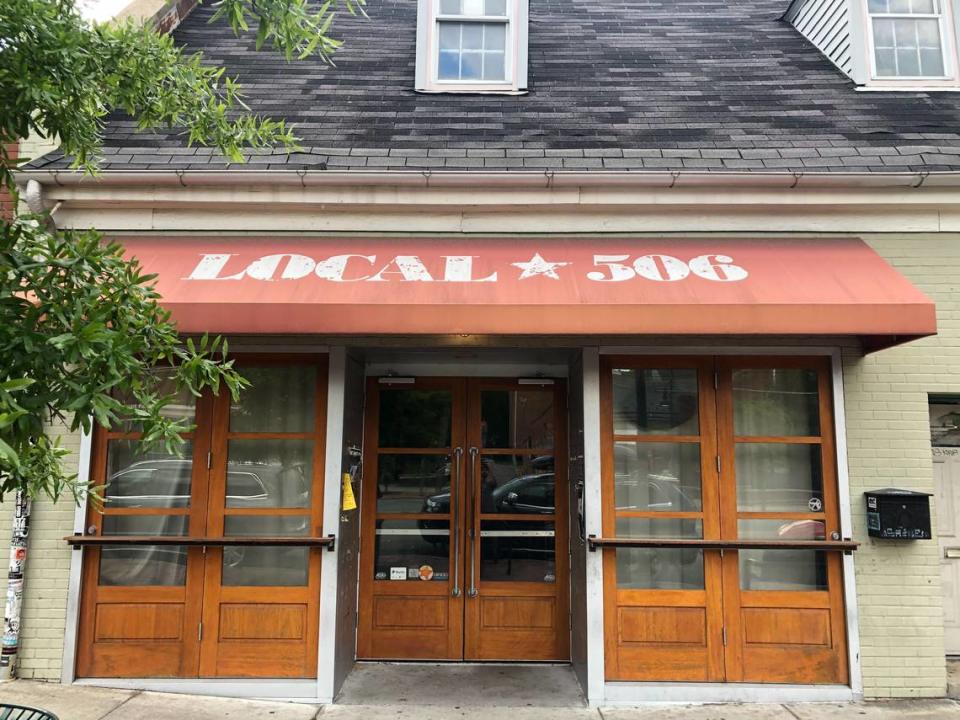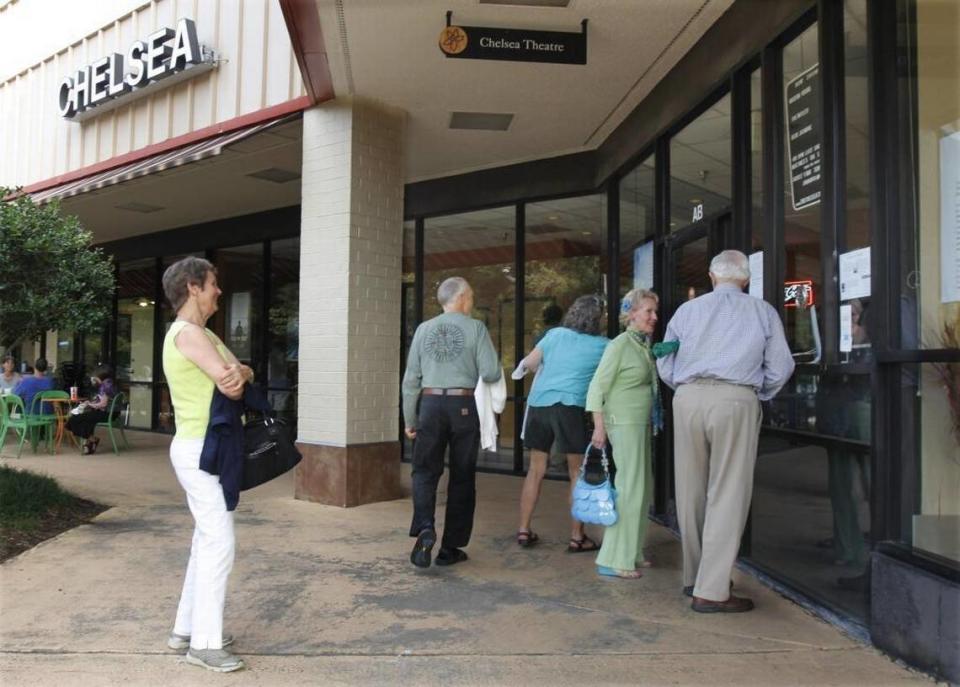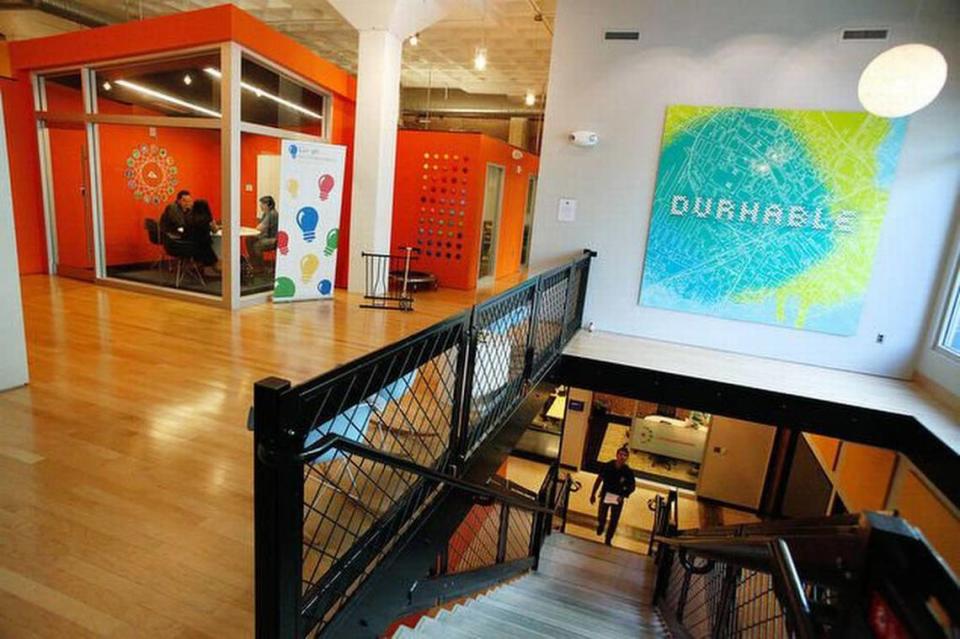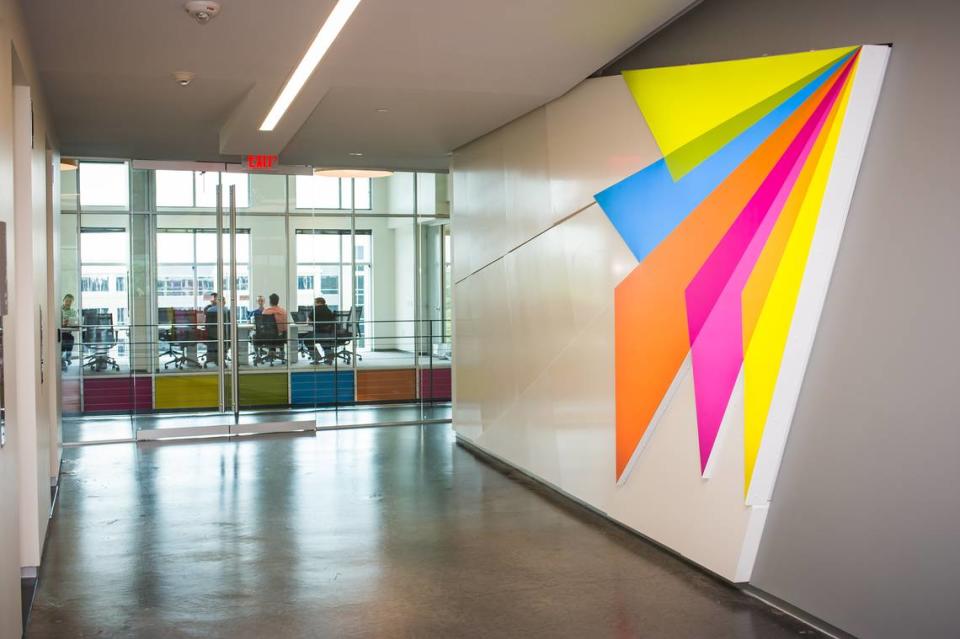Reopening the economy won’t mean a return to normalcy for businesses in North Carolina
For the first time this past week, Rob Walsh thought about the path forward for Local 506, the rock club he co-owns in Chapel Hill.
Just a few weeks ago, the venue had been booked solid throughout March and April, but the shows, like all social gatherings in North Carolina, were canceled or rescheduled.
Now Walsh and his business partner found themselves standing in the middle of an empty building wondering how they’ll be able to serve customers again. He had come to the club Thursday morning to do some upkeep on the sound system.
“Our business model involves large crowds drinking alcohol and dancing … I don’t know when that’s going to come back ,” Walsh said.
But “no one is throwing in the towel yet,” he added. The business set up a GoFundMe page, to raise money for employee salaries.
He and his business partner talked about the possibility of just opening up the bar section of the club and limiting it to a few people at a time — when they can reopen — keeping the hall and stage closed. But he said they’d have to feel like they aren’t putting employees and customers in danger before they can make that decision.
“The lights are on but there are no rock shows,” Walsh said. “We’re just waiting on the word from the governor. Maybe we can sell some beers.”
While businesses are desperate to get back to work, it is clear that, for most of them, there will be no return to what was normal before the coronavirus shut down the country’s economy.

From concert venues and gyms to architects and tech companies, businesses are facing existential questions about how they will continue to operate in a post-COVID-19 environment and what problems they will need to solve to make employees and customers feel safe.
“We are not opening back up to the way things were before,” Dr. Mark McClellan, director of the Duke-Margolis Center for Health Policy, told reporters on Friday.
Instead, the former commissioner of the U.S. Food and Drug Administration said, there will have to be an intense focus on ensuring distancing, additional cleaning and disinfection.
Missing being in person
The Chelsea Theater, which shows independent, documentary and other specialty films in north Chapel Hill, was planning a number of upgrades in early March. Then the coronavirus pandemic came to N.C.
At first, the theater limited capacity to half of normal and still held shows, but the stay-at-home orders stopped that.
Now they’re having to rethink their plans and how they do business.
Emily Kass, the executive director of the theater, said there will be a board of directors meeting on Monday, by videoconference, to talk about what they can still do with the cash they had earmarked for projects. After a couple of really good years of support from the community, she said, they now have to make the cash last longer.
In the meantime, they’re working on smaller upgrades, like a new coat of paint for the lobby.
“I think people are going to want to see a sparkling clean place when they come back,” she said.

The Chelsea has started offering virtual screenings for films, letting people purchase online tickets and watch the movies from home. The site is currently offering eight choices, ranging from “The Booksellers” to “Beanpole.”
She also said the site will soon offer programming from local filmmakers and opportunities for Q&A sessions with local professors after documentary screenings.
Kass said around 1,500 people have bought tickets already. The theater has also seen an increase in re-upped and new memberships.
“I really believe the community wants us to succeed, having saved us two years ago,” said Kass.
As for reopening, Kass said The Chelsea will have to wait and see how many people will be allowed to come in at a time, and if they need to socially distance their lobby.
The big question, she said, is when will people have the confidence to be around others?
With gym closed, fitness trainer adapts
Like the Chelsea, Alison Kats, owner of CU Fitness in Raleigh, had made her business virtual in most cases. The small gym just south of the N.C. state fairgrounds, serves as an alternative to big box gyms. The pause in in-person fitness lessons has given an opportunity to focus on more one-on-one training.
Kats has been leading group video classes for some and spending more time on the phone with other folks who aren’t as tech savvy.
For one client, she made a list of things to do and dropped workout items at their house. She said it’s about holding people accountable, keeping them engaged so they don’t fall off the wagon.
But she said she’s still really looking forward to being back in person and giving folks a place to take a break from the rest of their life.
“I’ve missed that probably more than I care to admit,” said Kats.
She said coming back will probably involve spacing out group and individual appointments further. This will give her the time to take extra steps to clean the gym and make folks feel safe.
When asked when she’d like to reopen the gym, she said she’ll have to see how a typical day will be different on the other side of the pandemic, but “as soon as I can, to be honest with you.”

Coworking spaces
Over the past decade, coworking spaces have become vital parts of the Triangle’s startup economy, providing flexibility and community support for a growing number of startups.
But the same thing that has made them strong — shared workplaces and lots of interactions with other entrepreneurs — could also make them vulnerable in a time when people worry about crowded spaces.
“I am not naive enough to think that every single member will be able to come back,” said Clark Rinehart, director of community at Loading Dock, a coworking provider in Raleigh that had more than 400 members before March.
There will be those who can’t come back because they are worried about their health, those that have now determined they are better off working at home, and those that no longer have the resources to pay for space. It will be Loading Dock’s job, Rinehart said, to make people feel comfortable, rearranging the layout of the space to create more distancing, cleaning surfaces regularly and providing plenty of hand sanitizer.
But, in the end, Rinehart still thinks there will be a demand for tight communities of businesses.
“I don’t think you can replace it. That is why I don’t think it is an existential threat,” Rinehart said in a phone interview about the communities these spaces create for businesses.
For Adam Klein, chief strategist at the Durham coworking hub the American Underground, the coronavirus has shown how important it is to develop community rather than just be a space people physically come to.
He said the American Underground is viewing the disruption as an experiment to see if it can successfully create virtual memberships — where members who don’t come to the office can join the coworking community via Slack channels, Zoom webinars, Google Hangouts and other online offerings.
“I suspect that this shift with COVID has been so drastic that we will have to think about online space more,” Klein said. “I don’t think online space will replace physical space but there will be a need to create online community.”
Future of offices
Throughout his entire career, Turan Duda, of Durham-based Duda|Paine Architects, has helped build the gleaming office towers that currently sit empty.
And during his career, he’s followed the changing trends of work, which in recent years has meant a surge in the open-office concept. But the coronavirus is about to completely change how buildings are designed, he said, starting with the company’s newest venture, Raleigh Crossing, the latest office tower under construction in downtown Raleigh.
“The virus has changed the whole scenario” of collaborative work, Duda said. Before this, “I could pack 10 people around one table and say, ‘Make great things happen.’ I think this new virus is antithetical to that. Caution is going to be the name of the game.”

The virus, he said, will change how buildings are designed for years to come.
First there will be a heavier focus on state-of-the-art air ventilation systems, he said, and a reconfiguration of entrances so that workers don’t have to use their hands to open doors. Just as TSA scans became the norm at airports after 9/11, “clean rooms” where people are checked for illness might be placed in lobbies, Duda theorized.
Rather than create air-conditioned boxes for people to work in, Duda said, his designs will likely include more outdoor spaces. Both his buildings in Raleigh, The Dillon and Raleigh Crossing, have large outdoor terraces, but it might become necessary to add outdoor spaces on nearly every level — or at least windows that open to create a natural air flow, he said.
There’s a real possibility that businesses could return to a more partitioned office environment, he said, or at least to furniture that provides more protection from neighboring employees.
“This is all brand new and we are going to be thinking about this,” he said.
No rush back to the office
But even Duda, who says he absolutely needs in-person meetings, knows there will be no rush back to normal gatherings. Rather it will change, with small meetings only happening when absolutely necessary.
In his case, he said, architects need to be together at the beginning of a design project, but he has now realized they can do just fine from home toward the end of a project.
Many companies, especially tech firms, are now finding out that letting employees leave the orbit of the office won’t kill productivity. It’s a development that could change the nature of work for years to come.

At ChannelAdvisor, a Morrisville-based company that makes e-commerce software, there is in fact no rush to return to the office — even when the government gives the go ahead.
“We really haven’t missed a beat in [working from home], and it’s been a giant test for us,” said Beth Segovia, chief operating officer for the tech company. “We’ve been very pleasantly surprised that ... we’ve seen improved efficiency.”
In surveys, employees have told the company they think they can be just as productive at home.
The firm, which has seen demand for its services grow during the pandemic, has even been able to onboard more than 30 new employees without them ever setting foot in the office.
“I think this gives us an opportunity to offer a more work-from-home schedule on an ongoing basis,” Segovia said. “Will the whole company work from home in the future? I doubt that. But I think we’ll see more flexibility in the future.”

